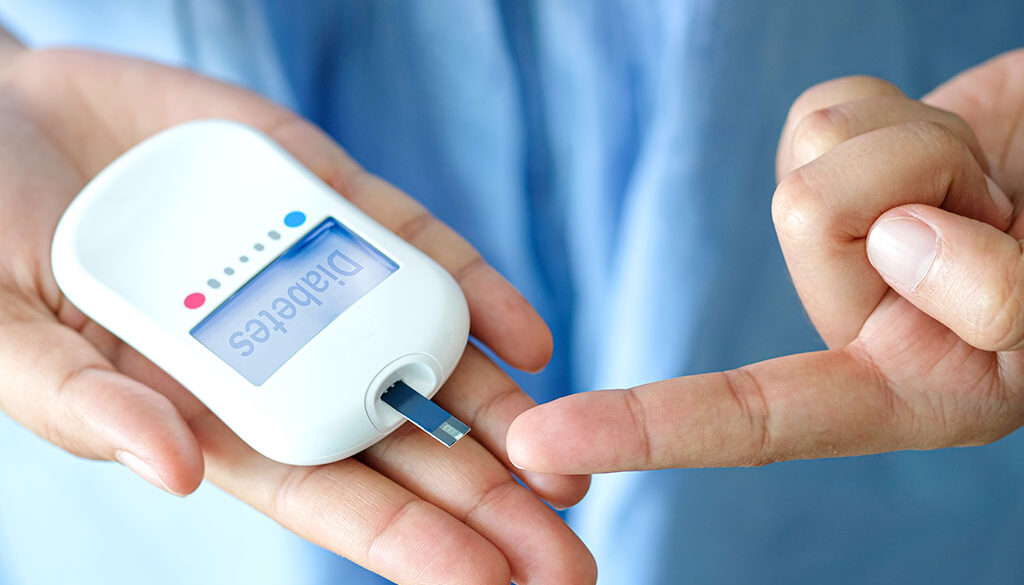Just the Facts: Type 1 vs Type 2 Diabetes Symptoms & Causes
Diabetes is a worldwide health crisis, and it affects 11% of Americans, according to the Centers for Disease Control. But do you understand the differences between Type 1 vs. Type 2 diabetes? Understanding the differences is key to helping manage and control the conditions.
We’ll examine Type 1 vs Type 2 diabetes, what symptoms they share, and the variations between the two. We’ll also tell you how our internal medicine doctors in Cary can help you effectively manage your diabetes.
Type 1 vs Type 2 Diabetes: The Main Differences
While these two diseases share a lot in common and both require treatment, there are distinctions. Type 1 diabetes will always require insulin treatment. Type 2 diabetes can be managed with lifestyle modifications such as weight loss and dietary adjustments and often, oral/injectable medications as well. Insulin may be required for Type 2 diabetes but it is not always necessary.
Type 1 Diabetes: An Autoimmune Cause
An autoimmune disorder is a condition where the body’s immune system “attacks” healthy cells. In this place the cells in the pancreas are impacted, causing insulin deficiencies. It can occur at any age but typically manifests in adolescence or childhood.
Symptoms of Type 1 Diabetes
Symptoms of Type 1 diabetes include:
- Frequent urination
- Excessive hunger or thirst
- Sudden, unexplained weight loss
- Fatigue
- Weakness
- Blurry vision
What Causes Type 1 Diabetes?
Research is ongoing to get to the root cause of the disease, but there is a strong genetic connection. Viral infections or environmental factors can also play a role.
Type 2 Diabetes: Influenced by Lifestyle Factors
Although this is generally diagnosed later in life, the rise in obesity rates across the country means that more and more young people have the disease. Type 2 diabetes occurs when the pancreas isn’t able to effectively produce enough insulin to control your blood glucose levels or when the cells in your body don’t respond properly to the insulin that is being produced, called insulin resistance.
The development of Type 2 diabetes is influenced heavily by factors such as diet and leading a sedentary lifestyle. While insulin or other similar medication is often needed to manage Type 2 diabetes, exercise, and a healthy diet can also go a long way toward keeping blood sugar under control.
Symptoms of Type 2 Diabetes
These are similar to the symptoms of Type 1 diabetes. They include:
- Excessive thirst
- Going to the bathroom more than usual
- Weight loss (without trying to lose weight)
- Cuts or ulcers that are slow to heal
- Blurred vision
Which is More Manageable, Type 1 or Type 2 Diabetes?
While these are both manageable conditions, they require different approaches. Each one presents its own set of challenges. In addition, which one is easier to manage depends upon each individual patient’s perception.
However, in general, Type 2 diabetes is easier to manage because in many cases it can be handled with lifestyle modifications and oral medications, while Type 1 diabetes requires insulin injections to manage.
How Do You Know If You Are Type 1 or Type 2 Diabetes?
First, when determining whether you have Type 1 vs Type 2 diabetes can only be determined by a doctor like one of our internal medicine physicians in Cary. Because Type 1 diabetes invokes an autoimmune response, our doctors will look for specific antibodies indicative of Type 1 diabetes.
While type 1 and Type 2 diabetes share several similar symptoms: both Type 1 and Type 2 diabetes, symptoms include excessive thirst, unexplained weight loss, blurred vision and frequent urination. However, with Type 1 diabetes, these symptoms tend to appear abruptly, while in Type 2 they may appear gradually.
Type 1 diabetes can occur at any age but is more often diagnosed in childhood or young adulthood. Type 2 diabetes is typically diagnosed in adults, however, with rising obesity rates across the United States, the disease is being found more often in the younger population.
Can Type 2 Diabetes Turn Into Type 1 Diabetes?
As we mentioned, there are several similarities in type 1 vs Type 2 diabetes, but Type 2 does not naturally turn into Type 1.
How to Manage Type 1 vs Type 2 Diabetes: Our Internal Medicine Physicians in Cary Can Help
Your health is a valuable asset, so if you are experiencing the signs and symptoms listed above, take the first step toward getting the guidance needed to manage your health. Untreated, diabetes can cause extensive complications, and in extreme cases, may lead to blindness or amputation.
As internal medicine physicians in Cary, we have a keen understanding of how all the body’s systems interact, which makes us a natural choice to manage diabetes. Our approach to individualized care means we will work with you to develop lifestyle modifications and tailor a plan to help you. If you need insulin therapy, we’ll work closely with you to ensure you have the education you need to be successful.
Ready to take control of your health? Contact us for an appointment today.




